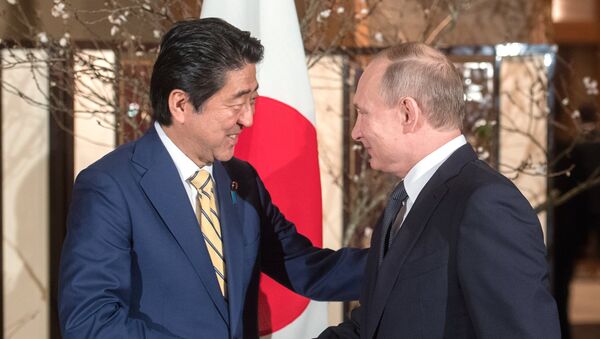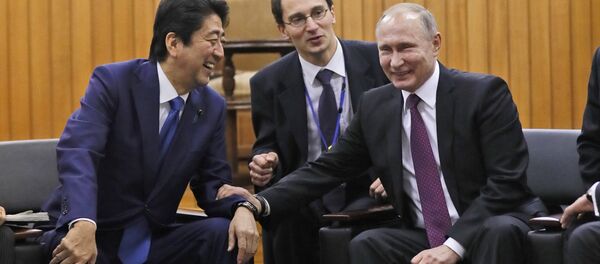This issue is not one that can be resolved immediately, Dr. Seijiro Takeshita, Professor of the School of Management and Information at the University of Shizuoka, noted. It "is going to take a long time, we all know that. That's one of the reasons Mr. Abe suggested that Mr. Putin see him every year in order to make slow but positive progress," the analyst said.
"The good thing is that these two gentlemen have created a pretty good relationship over the years. They know each other quite well and Mr. Putin has a [belief] that Mr. Abe will be in power for some time. That's one of the reasons why they were able to sustain this kind of a long-term relationship that [could lead] to long-term agreements," the analyst explained.
The fact that Russian and Japanese companies signed 68 agreements during Vladimir Putin's two-day visit to Japan appears to back these assertions. The deals cover such areas as nuclear energy, oil and gas exploration, logistics, investment, pharmaceuticals and agriculture.
"There is a lot of positivity on both sides" when it comes to economic cooperation between Russia and Japan, Dr. Seijiro Takeshita added.
Dr. Seijiro Takeshita further said that energy cooperation with Russia "is good news for a lot of Japanese industries and companies." He also mentioned that it will help Tokyo to decrease its dependence on oil imported from the Middle East.
"Hopefully we can keep a warm relationship on this matter to improve things while we show a very good progress on the economic side, which I think is of outmost importance," the analyst said.
Have you heard the news? Sign up to our Telegram channel and we'll keep you up to speed!




